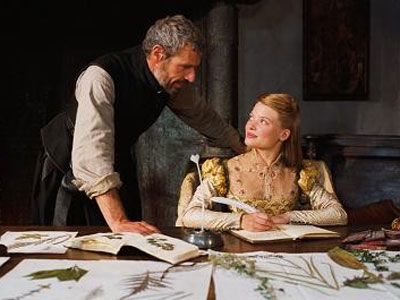CIFF: The Princess of Montpensier
By Rob Christopher in Arts & Entertainment on Oct 8, 2010 5:20PM
 This is part of Chicagoist's coverage of the Chicago International Film Festival.
This is part of Chicagoist's coverage of the Chicago International Film Festival.
This full-blooded (and occasionally very bloody) romance is set in the year 1567, while France is being ravaged by on again, off again civil war. We witness the intrigues of the royal court through the eyes of two central figures: the Comte de Chabannes, a world-weary man of learning who has given up the sword after one too many senseless deaths, and his pupil, the Princess of the movie’s title, a headstrong girl who chafes against the arranged life planned for her by the various men in her orbit.
Far from merely leading lives of pampered leisure, members of royalty had to be on constant guard against both outside forces and each other. Even the villains of the piece are more or less just doing what it takes to survive in such a brutal atmosphere. No wonder Chabannes takes solace in looking up at the stars, and their ordered, balanced co-existence.
Director Bertrand Tavernier proves again that he remains one of the world’s most dependably solid filmmakers, masterfully guiding us through a complicated world of prearranged marriages, honor, and royal favoritism without turning the whole thing into a gloopy soap opera. He's not concerned with reinventing the wheel, just with telling a good solid story. The attention to period detail is matchless, steeping us in the social and sexual world of 16th-century France (which includes an unforgettable depiction of a wedding night; not for the squeamish.) The arresting production design and periodic moments of exciting swordplay are well-balanced with fine character shading. Though the movie is largely free of the tongue-in-cheek humor of his previous “swashbuckler” (known in the US as Revenge of the Musketeers), Tavernier, a renowned gourmet, does indulge himself by displaying several luscious tableaux of food. His movie is a feast for the senses.
The Princess of Montpensier screens October 10 and 12.